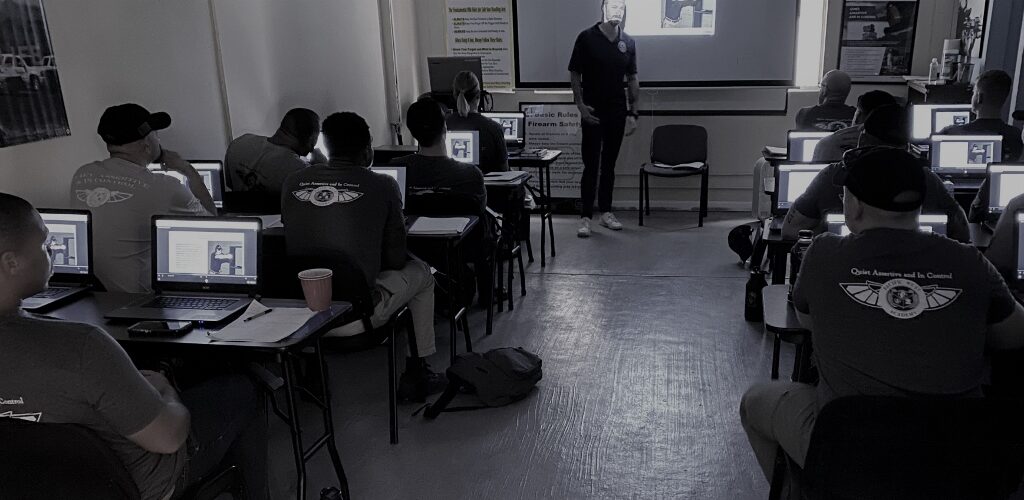

Client/Agent Speaking Interaction
Client/Agent Speaking Interaction
As an executive protection agent, what is said directly to, or even around a client can make or break a successful detail. Good agents already understand that their job is just as much a customer service position as it is a physical protection position. Understanding how and when to speak can make you either a professional and personable asset, or an abrasive, unapproachable liability. As an executive protection agent, here are a few things to consider when it comes to the client/agent speaking relationship:
New Agent vs. Agent who has a rapport with the client
One of the biggest pitfalls for a new or young agent is believing that you have the same rapport and history with a client as an agent that you have witnessed working with the client in the past, this could possibly be your mentor or supervisor. Just as with any other human relationship, this professional relationship must begin from an area of trust. As a new agent you do not have the latitude that someone who has already gained the client’s trust. This is especially true when it comes to speaking with a client. On the opposite side, speaking as if you are a Secret Service agent whose directions must be followed is probably the second largest problem for most new agents. Barking orders at your employer will not get you the results you want and will strain the relationship.
Simply put, be courteous and personable. This will get you much farther than acting like a stone wall. Speak enough to answer questions in a polite but concise manner. Over time you will develop a better understanding of the client and you will be able to determine if more or less talk is necessary in a given situation.
Giving direction and conversation
Giving your client direction as to where they should walk or go in regard to maintaining safety and punctuality is a regular occurrence as an EP Agent. The client may know where they are generally supposed to go but simple directions can help to keep them moving. As a new agent, it is best not to tell them what to do as if they have no other option. You must look at it as if you are giving them a suggestion (if there are no threats). Forcefully telling a client exactly what they are going to do when not managing a crisis can make them feel like you have the impression that you are the boss. This can quickly irritate a client and you may find yourself relieved of your duties.
Conversations between the client and protector can be problematic, especially as a new agent. If your client is initiating the conversation, keep your answers polite but short; getting drawn into a deep conversation could reveal character differences between you and the client. Your business is protection, not to debate cultural, political or religious differences. These are topics that should usually be avoided. A general rule I like to use is; if a client asks a question regarding the detail, answer clearly and concisely. If they ask a controversial question, without acknowledging them, wait for them to ask it again, they may change their mind if they believe you didn’t hear them. They will ask again if it is important to them. If they do ask a controversial question, give a generalized answer that doesn’t give away what “side” you stand on so that a debate doesn’t ensue. Should you find yourself in this situation it is best to be agreeable, even if you do not view the subject the same way as the client.
Finally, do not respond to or make mention of overheard conversations between the client and their friends/family/coworkers that you may be around. The client does not want you listening to their personal conversations, this is doubly true for not wanting to hear your suggestions to a personal matter they may be dealing with.
In the vehicle vs on foot
As a new agent, most of your time with the client will be on the move. Inside of the vehicle is where you may find yourself most susceptible to conversation. As stated before, be polite but your main focus should be on the road and getting your client to where they need to go. Traveling on foot is much easier because it naturally gravitates toward giving direction. This is simple, “through the doors and to the left” or “right and up the steps,” this will keep you from getting engaged in a conversation that will draw your attention away from your duties.
The Cardinal Rule
Remember, your client hired you for professional executive protection services, not to be around a friend and especially not be a nuisance. Do not initiate conversation, let them initiate if they decide to do so. Simple greetings can go a long way, but conversation is not a criteria for mission success. Focus, keep it simple and keep it moving.
Pacific West Academy prides itself on teaching relevant knowledge to students in the Executive Protection industry and draws it’s knowledge from it parent company, ASC, a leading company in the executive protection field.
